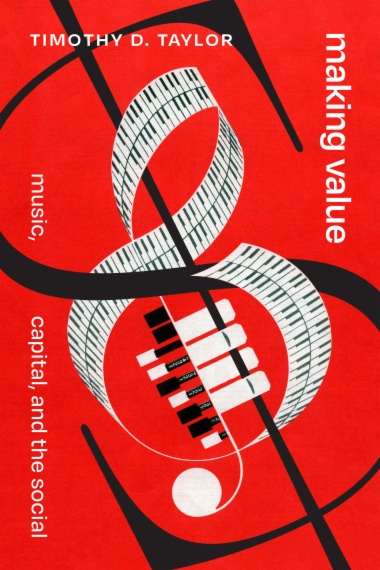In Making Value, Timothy D. Taylor examines how people’s conceptions of value inform and shape their production and consumption of music. Drawing on anthropological value theory, Taylor theorizes music’s economic and noneconomic forms of value both ethnographically and historically. He covers the creation and exchange of value in a wide range of contexts: indie rock scenes, an Irish traditional music session, the work of music managers, how supply chains function to create various forms of value, how trendspotters seek out and create value, and how musical performances act as media of value. Taylor shows that to focus on value is to attend to what is meaningful to people as they move through their worlds. Ultimately, Taylor demonstrates that theorizing value aids us in moving beyond the music itself toward understanding how musicians, workers in the music business, and audiences struggle to make and maintain what they value.
- Cover
- Contents
- Acknowledgments
- Introduction: Theorizing Value in Practice
- 1. Supply Chains and the Production of Value of Cultural Goods
- 2. Making Musicians into Productive Laborers
- 3. Trendspotters: Agents and Inspectors of Consumer Capitalism
- 4. Taking the Gift Out and Putting It Back In: From Cultural Goods to Commodities
- 5. Maintenance and Destruction of an East-Side Los Angeles Indie Rock Scene
- 6. World Music, Value, and Memory
- 7. Musical Performance as a Medium of Value
- 8. Circulation, Value, Exchange, and Music
- Notes
- References
- Index
- A
- B
- C
- D
- E
- F
- G
- H
- I
- J
- K
- L
- M
- N
- O
- P
- Q
- R
- S
- T
- U
- V
- W
- Y
- Z

